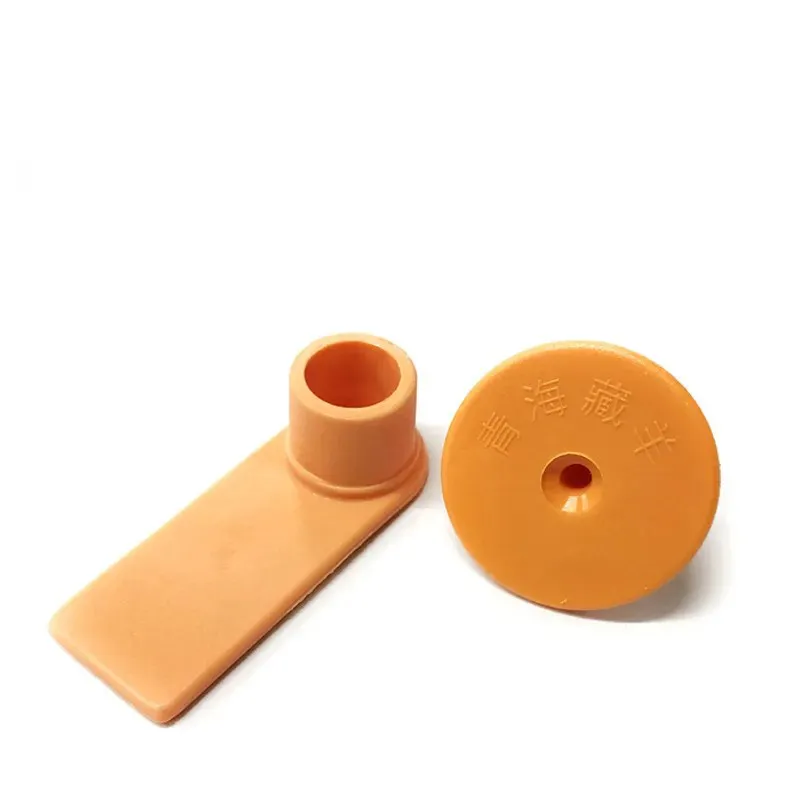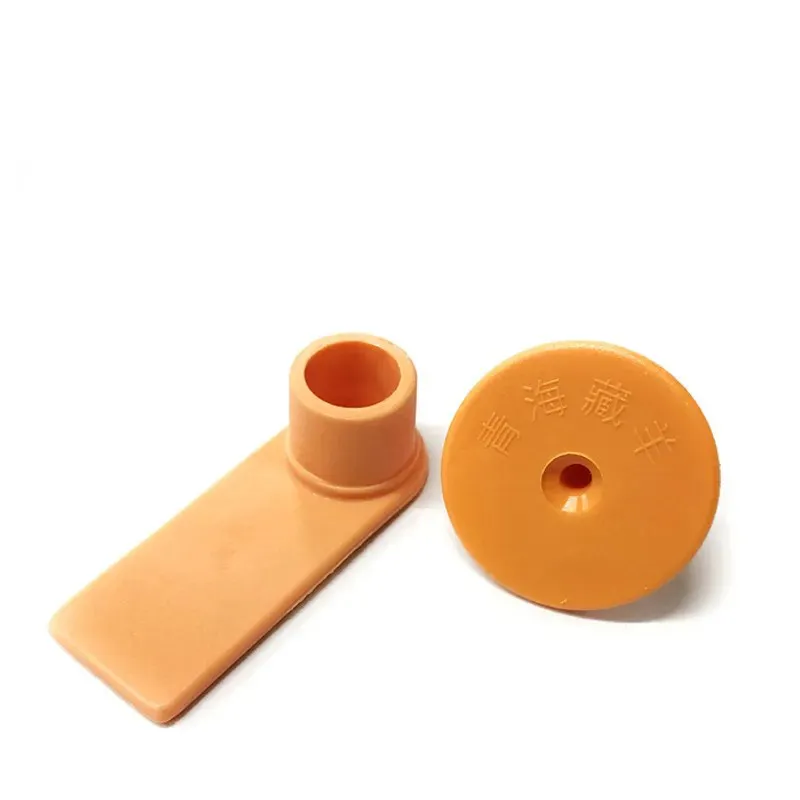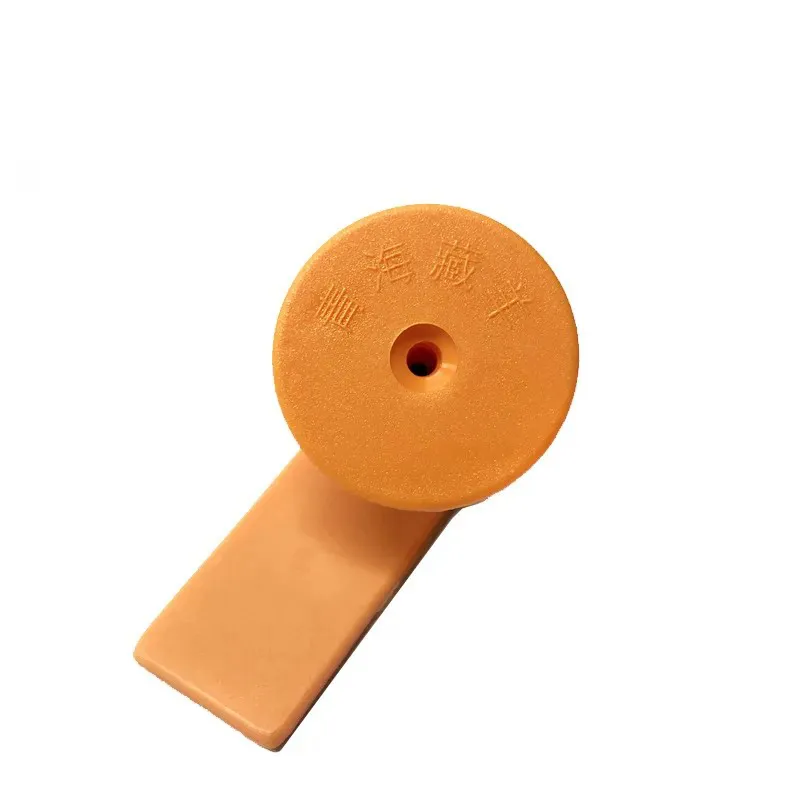
The ultra-high frequency Tibetan sheep electronic ear tag produced by Lapson is an intelligent ear tag specially used for automated management of Tibetan sheep breeding, slaughtering and processing. The ear tag has individual identification, data statistics, whereabouts control, automatic feeding, behavior Management and other functions. The ultra-high frequency Tibetan sheep electronic ear tag can record the ear number of each Tibetan sheep along with its breed, origin, production performance, immune status, health status, feeding, breeding, slaughtering, sales and other information to establish the production management of the enterprise. and the supervision of government authorities to achieve a full traceability system, show consumers the entire process of food safety production, and enhance the influence of the Tibetan sheep brand.

| Product name | UHF Tibetan sheep electronic ear tag | model | LPS-U02 |
| Product basic parameters | |||
| color | orange | Material | Imported polyether polyurethane TPU |
| size |
Main mark: diameter=26mm
Auxiliary standard: length*width=45mm*17mm |
Male standard cone head | Second injection molding |
| Operating temperature | -40℃ to +50℃ | storage temperature | -60°C to +75°C |
| Working humidity | The chip reads normally between 5% and 90% humidity | Service life | More than 10 years |
| bid loss rate | 3% to 5% | main header | Copper head material |
| Binding force | 280N-300N | weight | |
| Package | 25 sets/box | Certification | ISO9001 / ISO14001 |
| Tag chip parameters | |||
| tag chip | ALIEN H3 | Communication frequency | 920Mhz-925Mhz |
| label position | The electronic label is located in the center of the auxiliary label | Chip technology | QFN welding |
| data storage |
96-bit product code area (EPC)
512-bit data area (User) 64-bit tag identification number area (TID) 32-bit reserved area (Reserved) |
letter of agreement |
Chip code: ISO18000-6C
QR code encoding: NY/T 938-2005 |
| Sensitivity | Below -10dBm | Chip life | Read and write more than 100,000 times |
| Data retention period is greater than 10 years | |||
| way of communication | Passive communication | Reading distance | 1 meter to 1.5 meters, using 30dbm power handheld reading test |





UHF Tibetan sheep electronic ear tags have the following characteristics:
1. This ear tag complies with ISO18000-6C radio frequency identification international standard and NY/T 938-2005 QR code animal ear tag standard.
2. This product combines the dual functions of a visual ear tag and an electronic chip. It can not only print numbers and QR codes on the mother tag, but also implant an imported original chip. The chip is designed with QFN packaging and the antenna is made of copper material. , has a very good service life and anti-interference ability, can read and write up to 100,000 times, has high reading sensitivity, long reading distance, and is not affected by the ranch environment.
3. This product is designed using a secondary injection molding process and has excellent waterproof and anti-shedding properties. It has good acid and alkali resistance, corrosion resistance, ultraviolet radiation resistance and other characteristics.
4. This ear tag can use a special handheld device and a fixed reader to automatically identify each Tibetan sheep individual, and use modern information technology to accurately grasp the Tibetan sheep's life process, growth dynamics, and growth and appearance at each reproductive stage. Dynamic monitoring and trend analysis can speed up the flow of information and control, improve the accuracy of business operations, improve the technical level of precision breeding and the ability of breeding base management to better carry out large-scale, standardized and intelligent breeding.

